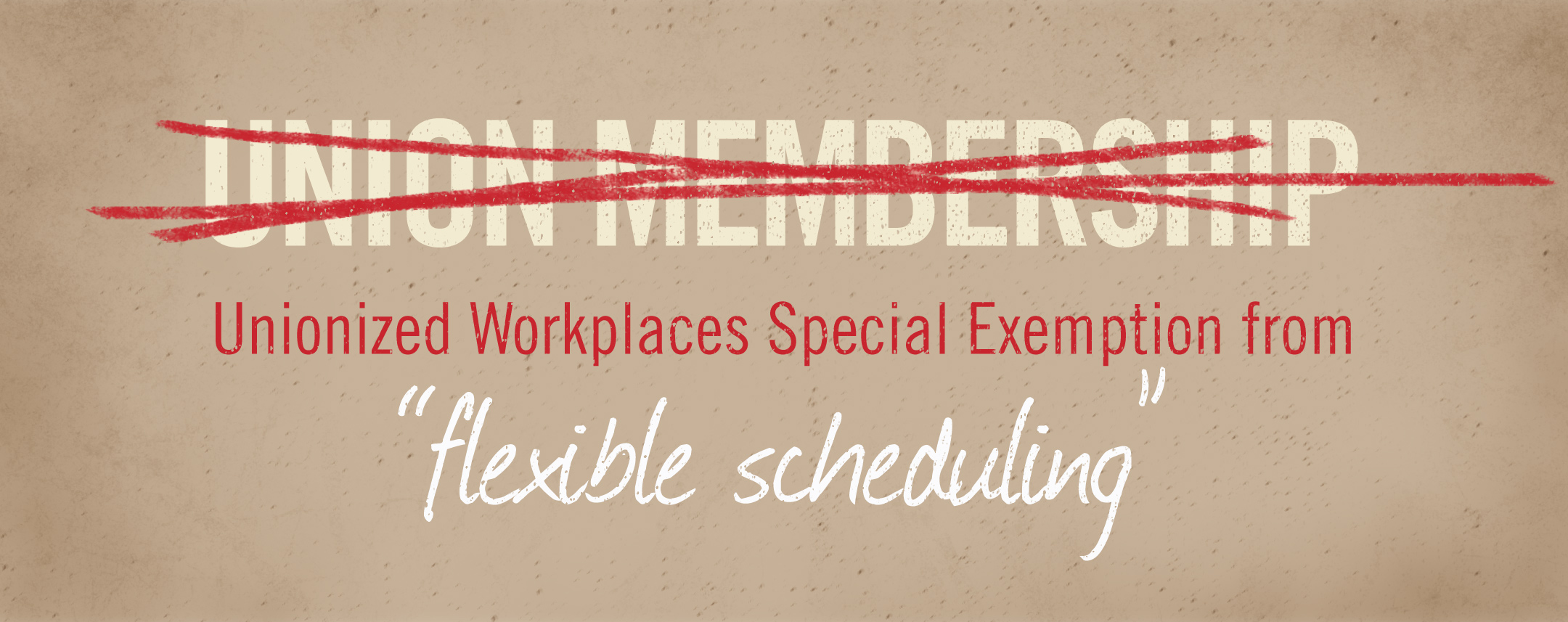The next big priority for Oregon labor unions is to grow their monopoly over dues-paying workers.
They’ll say it’s to protect them from the devastation wrought by “flexible scheduling” in the workplace, but in reality it has less to do workers’ schedules than it does with extending the ever-profitable reach of the state’s labor unions.
The term “flexible scheduling” is meant to be a condemnation of the practice by which employers exercise flexibility when changing their employees’ work schedules. Those who oppose it – primarily labor-backed lawmakers – insist regulations are needed to control the way employers can make such changes.
Following the example of a Seattle citywide ordinance, a legislative work group in Oregon steered by state Sen. Michael Dembrow (D-Portland) recently touted the issue in preparation for the upcoming 2017 legislative session.
But the Seattle ordinance on which the proposed legislation would likely be based also contains one whale of a special exemption:
The rules don’t apply to unionized workplaces.
In fact, union contracts often contain their own provisions allowing flexible schedule arrangements between an employer and his or her employees. Yet paradoxically, they’re undoubtedly the driving force for rules against it.
It’s clear why. The unions don’t give a rip about flexible scheduling. Their only motive in passing such legislation is to put pressure on employers to succumb to unionization efforts.
By including the exemption for unionized workplaces, restrictive scheduling rules like the one in Seattle create a strong incentive for private employers to give in to those efforts.
The result?
Employers may escape the new regulations, but workers won’t be so lucky. Once their workplace is unionized – often a not-so-democratic process – they’ll have no choice but to hand over monthly dues and fees to the union as a condition of employment.
To be fair, we don’t yet know whether Sen. Dembrow’s upcoming legislation will contain the union exemption. But don’t be surprised if it does.
After all, he’s received nearly $45,000 from Big Labor and its various PACs in 2016 alone. That’s over half of his entire war chest. Does it follow he’d do something without their approval?
Probably not.
Businesses in our state understand these regulations are a bad idea at face value. That’s why each one initially represented in Dembrow’s work group decided to withdraw after only a few meetings. They’re simply not interested in hearing liberals drone on about the next way they plan to stick it to evil employers.
Kudos to them. But they – and their employees – should also know there’s much more at stake.
Expect to see flexible scheduling legislation in 2017, but especially keep an eye out for the union workplace exemption.
In the end, it’s just a deceptive attempt by the state’s monopolistic labor unions to expand their mandatory-dues-collection scheme.











